Review of the Day: Eventown by Corey Ann Haydu
 Eventown
Eventown
By Corey Ann Haydu
Katherine Tegan Books (an imprint of Harper Collins)
$16.99
ISBN: 978-0062881021
Ages 9-12
On shelves February 12th
Every year various dictionaries and encyclopedias try to determine what the Word of the Year is, and every year they make some pretty good choices. Here’s one that I don’t think they’ve done yet, but that’s been on a lot of minds anyway: Discomfort. There’s been a lot of talk about it lately, particularly in terms of the value of uncomfortable/valuable conversations. I am, personally, a person who tends to avoid discomfort at all costs, and my privilege is that I can too often do so. Only because I live in this age and this era of America can I see where avoiding the messiness of living in this world is potentially dangerous, not to mention irresponsible. So, to the year 2019, I hand this middle grade novel. In Eventown by Corey Ann Haydu, you’ll find a marvelous defense of messiness, mistakes, and uncomfortable conversations. We all want to run away from our problems, but it’s like that old phrase says: Be careful what you wish for.
It happened in the past. It hurt. Now Elodee’s family is in pain. Her father, her mother, her twin sister Naomi, and Elodee herself all feel burdened by something that they can’t even talk about anymore. So when Elodee and Naomi’s mom gets a job working for the village of Eventown, they simply cannot believe their luck. Eventown’s the kind of place where you can get a fresh start. It’s where the neighbors all get together to make you a recipe box of delicious things you couldn’t burn or ruin if you tried. Where the kids in school never tease you. Where the sunsets are miraculous and the stars, if it’s at all possible, shine brighter than anywhere you’ve ever been. At first Elodee is swept up in the joy of living in such a place, but as time goes on she begins to see oddities. Why does her yard have weeds when no one else’s does? Why do the other kids act so aghast when she tries a different s’mores recipe? And why, oh why, can’t Elodee just give in to the place and be happy here? It takes a lot to live in Eventown, so what Elodee needs to determine is whether or not it’s worth it in the end.
ADVERTISEMENT
ADVERTISEMENT
Childhood utopias automatically come outfitted with built-in weirdness. It’s part of the deal. Hogwarts had a snake in the basement. Willy Wonka’s chocolate factory had a peculiar tendency to knock off small visitors. You get the drift. These locations have a natural fantasy component that taps into a child’s ultimate desire (magic, chocolate, etc.). Less common is the idea of a perfect town. Even so, it’s there. When I was a kid I’d write short stories about a little town where I could make up all the families and characters. There was a comfort to it. Think of what Harriet M. Welch is doing in at the beginning of Harriet the Spy. And I think Haydu’s being very clever with this book because what’s truly fearful about Eventown is its seductiveness. Remember that line in the musical Into the Woods that Little Red Riding Hood sings about the wolf? “Nice is different than good.” Going to Eventown is like a crash course in nice vs. good. And the problem with nice, as a whole bunch of us know, is that it can be weaponized in the fight against truth.
Reading the book I was intrigued by how the creepy elements of the tale sneak in at a glacial rate. So much so that I found myself silently chanting, “Come on other shoe … drop, man, drop. Drop, man, drop!” Drop it does, but in slow motion. Need a novel for 9-12 year olds that epitomizes the very definition of “foreshadowing”? Meet my little friend here. It knows that some of the most effective horror comes from the people we love the most. Elodee’s whole family has drunk the Eventown Kool-Aid without so much as a blink, but she doesn’t see that for a long time. Instead, she has to encounter what I consider one of the most frightening concepts of all time. Loving, patient kindness combined with insane actions, resulting in the kind of villainy I’ve never really seen in a children’s book before. The adults in this town aren’t passive aggressive so much as they’re completely dedicated to horrible inanities. Let’s put it this way: You can’t help but like a book where the foreshadowing centers around a town’s lack of library. Or, even better, the horror of what it becomes. Honestly, not since The Great Gatsby has a library been as much of a lie as the one found here. What happens to the town library will strike many kids as an unspeakable crime. It’s a very clever means of turning kids against the notion of comfort and stability at any cost.
As I read, I kept finding natural connections to this book. Certainly in terms of cinema this book is pure Eternal Sunshine of the Spotless Mind meets Pleasantville. In terms of children’s books the tie-in is Orphan Island (more on that later). I was even reminded of that moment in A Wrinkle in Time where Meg confronts It and must parse the difference between equal and the same. But when I really sat down and thought about it, the best equivalent to this, in a lot of ways, is Aldous Huxley’s, Brave New World. It might as well be Elodee saying “I’d rather be myself . . . Myself and nasty. Not somebody else, however jolly.” Or, “If one’s different, one’s bound to be lonely.” And, ultimately, the perfect quote for it all: “Actual happiness always looks pretty squalid in comparison with the overcompensations for misery. And, of course, stability isn’t nearly so spectacular as instability. And being contented has none of the glamour of a good fight against misfortune, none of the picturesqueness of a struggle with temptation, or a fatal overthrow by passion or doubt. Happiness is never grand.” Huxley said it first, but it’s nice to have something on a younger level for the kids. Eventown is the perfect gateway drug for “Brave New World” later on.
I mean, this might be an out there idea, but is it possible that this book is a metaphor for what it feels like to have depression? Elodee is constantly having to defend herself against the accusation of not trying to be happy. Her sister says, “You’re making something easy so hard.” Here’s how Elodee thinks of it instead, “There’s a grip in my heart, and Naomi’s right here but she feels a million miles away, on a whole other planet, and she gets to be there with Mom and Dad and I’m stuck here, on my weird little planet all alone. I want to explain all of that to her, but every time I try to explain what is making me feel unsettled or weird, all I do is get further and further away.” When her sister tries to cheer her up (with guilt, which in my experience always works so very very well) it says, “… I try to make Naomi grinning at me enough to make me grin too. I am trying so, so hard.” All throughout the book Elodee has to deal with a world where she feels like she’s the only one who has to try this hard. It’s a deeply lonely experience, and I couldn’t help but think of people with depression who have to deal with concerned friends and family members who say unhelpful things like, “Why don’t you just get over yourself?” and “Why don’t you want to be happy?” Like Elodee says, they try so, so hard, but often that’s not the issue. The real issue is deep and buried. In the case of this book, literally so.
ADVERTISEMENT
ADVERTISEMENT
Again, the book that I kept thinking about the most as I read this was Orphan Island by Laurel Snyder. In both cases you have a mysterious location, otherworldly occurrences, and a girl on the cusp of teenagerhood with whom the world does not sit well. Both live in kinds of utopias. There the similarities stop, though. In Orphan Island things start to go wrong because the heroine questions the way things are, and that’s a bad thing. In Eventown things start to go wrong because the heroine questions the way things are, and that’s a good thing. In both books she dares to question the world. In only one book does that choice go well. Why do these books ring oddly true with kids? Because in the real world, adults withhold pertinent information from their children all the time. This is not necessarily a bad thing since there are many things in this world that kids just aren’t ready to know. I guess the root of it is, to a certain extent, intent. Are you keeping kids in the dark because it protects them or because it protects you?
I wouldn’t think of this, any of this if it weren’t for Haydu putting it all together so well. There’s a patience to her writing. She must have had so much fun thinking up exactly how much fun to make Eventown. The different flavors of ice cream, the delicious green strawberries, the waterfalls, the gigantic blueberries, the butterfly house, the copper cooking equipment, all of it. Her book burns slow, but once things start getting weird it speeds up considerably, like weeds spreading in the night. I liked a lot of how she chose to phrase things, like when Elodee thinks of herself as, “…a tiny, cozy, ball of limbs.” Or when the dad says, “Love has a lot to do with imperfections,” which may as well be the theme of the book itself. The only part of the book that didn’t quite gel with me came at the end. I liked where the book went, but (and this is a funny thing to say) it felt too tidy. Not messy enough. There was satisfaction there, but I think it needed just a hair more of a conclusion. There’s a big discovery, words are said, words are listened to, and then we’re outta here!! The mom, especially, does a turnaround that didn’t feel real to me. I needed a little more thought there. Kids would probably not agree.
Years ago there was an episode of the Radiolab podcast about a moment in history when a scientist truly believed he might have found a way to remove select memories from people’s brains. The scientist was then flooded with desperate requests from people around the world. These people were begging him to remove the pain of the past from their brains. This connects, for me, to the moment in this book when it starts to rain. When that happens, some of the neighbors go out of their way to express pure fury at Elodee’s family. It’s very much a case of them essentially saying, “Your discomfort is reminding me of my discomfort.” We want so very much to find ourselves a blank slate of some sort. No bad past, no fearful future. And kids, the age of the readers of this book, already have a sense of this. Some of this book’s readers will have encountered fearful, horrible, terrible things in their pasts. Some of them will encounter these things in their futures. And a bunch of them will look at Eventown, even with all its flaws, and want to go there in the same way that kids have wanted to go to Hogwarts for years. There is no Eventown. Not even Eventown is Eventown. I won’t tell you that’s good or bad. You’re just going to have to read this book and decide for yourself.
On shelves February 12th
Source: Galley sent from publisher for review.
Like This? Then Try:
- Orphan Island by Laurel Snyder
- Masterminds by Gordon Korman
- “Just Desert” by M.T. Anderson in The Chronicles of Harris Burdick
Notes On the Cover: Can I get a round of applause for the folks responsible for this cover here? Book jackets in general are difficult to create. You want to hint at the story and not give too much away. The particular challenge with this book is that it’s just so doggone sunny for so long. So how do you visualize foreshadowing? Literal clouds help, sure, but what I love about this cover is that at a first glance you wouldn’t notice what was odd about it. It takes the dedicated reader to take a closer look and realize what’s going on. It takes the person who has already read a lot of this book to realize why that’s significant. Well done.
Filed under: Best Books of 2019, Reviews, Reviews 2019
About Betsy Bird
Betsy Bird is currently the Collection Development Manager of the Evanston Public Library system and a former Materials Specialist for New York Public Library. She has served on Newbery, written for Horn Book, and has done other lovely little things that she'd love to tell you about but that she's sure you'd find more interesting to hear of in person. Her opinions are her own and do not reflect those of EPL, SLJ, or any of the other acronyms you might be able to name. Follow her on Twitter: @fuseeight.
ADVERTISEMENT
ADVERTISEMENT
SLJ Blog Network
Notes on April 2024
Review| Agents of S.U.I.T. 2
Navigating the High School and Academic Library Policy Landscape Around Dual Enrollment Students
Book Review: The Kids in Mrs. Z’s Class books 1 and 2
ADVERTISEMENT



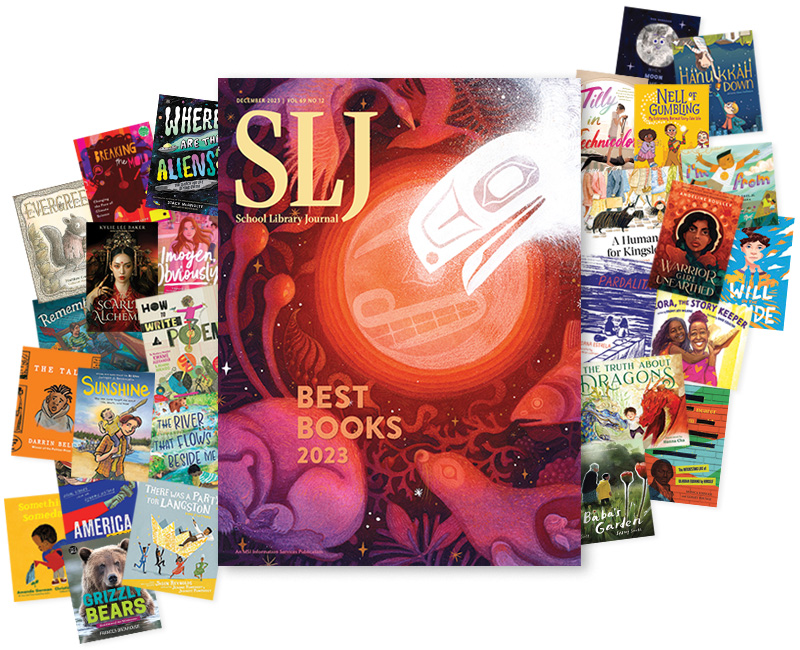
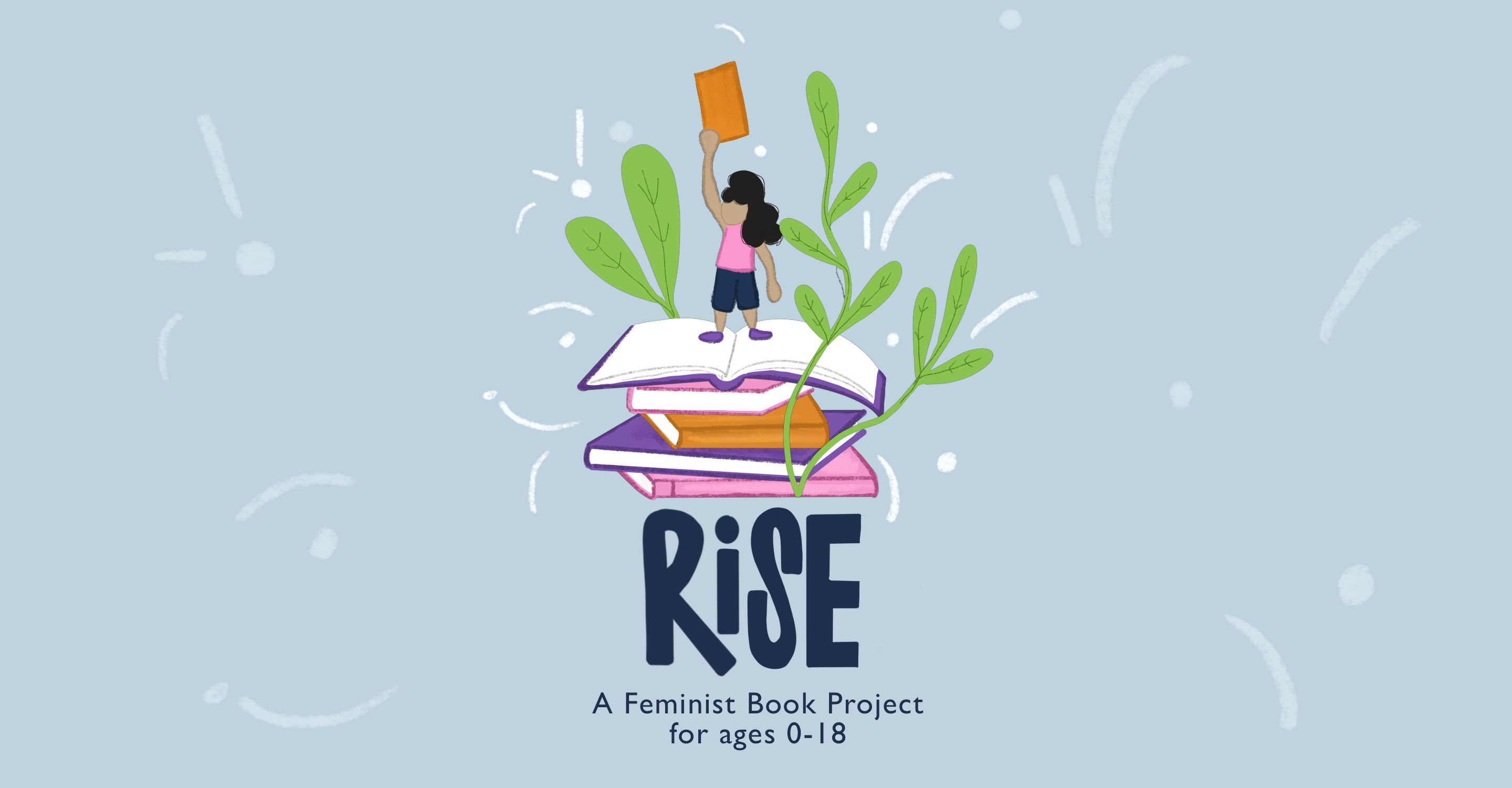
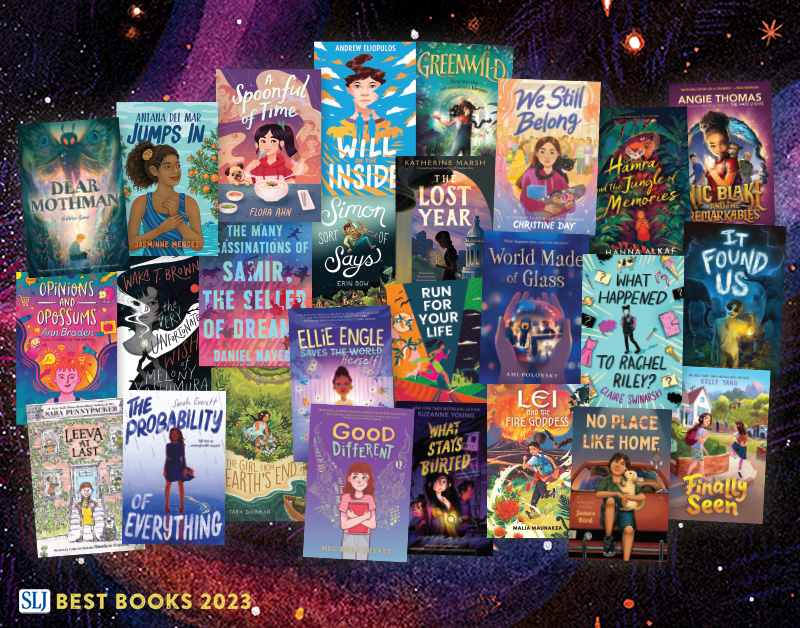
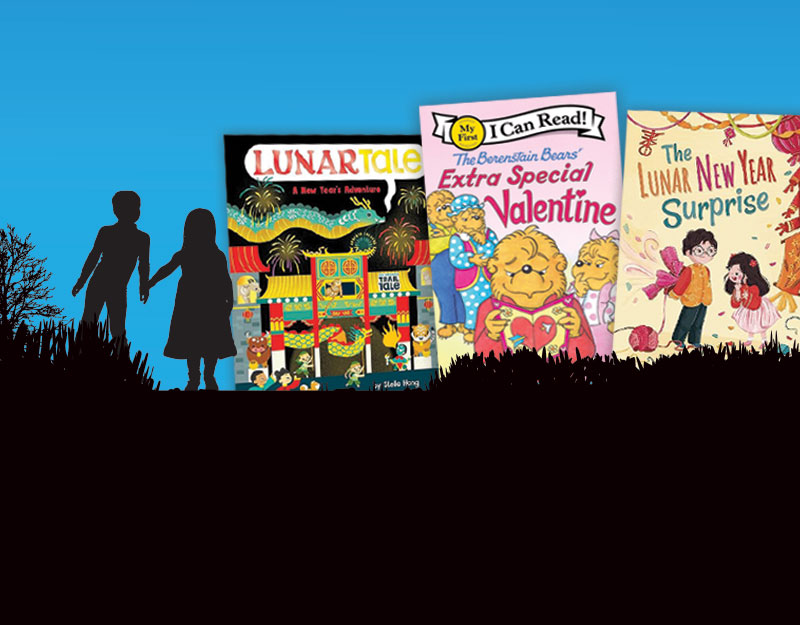
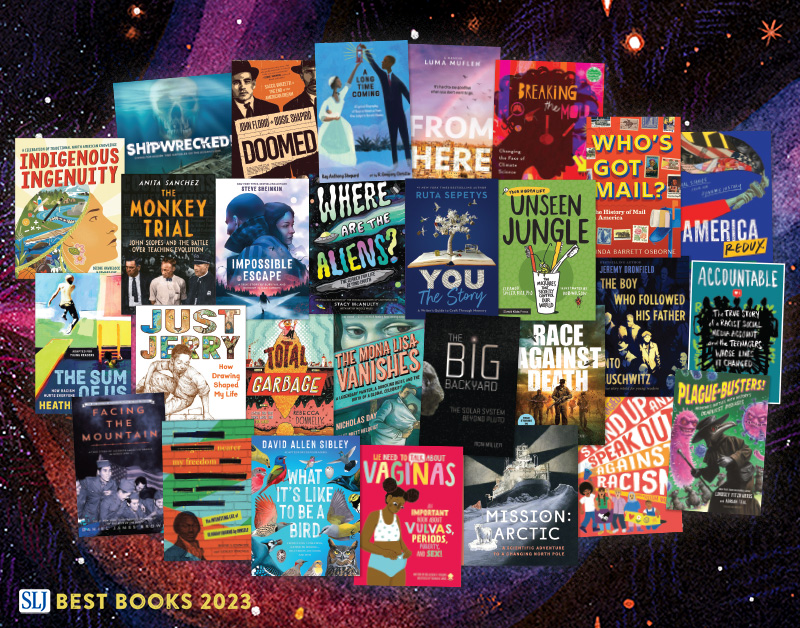
One of the many things that impressed me was the characterization of those responsible for Evertown. I didn’t read them as out-and-out villains a la President Snow (Hunger Games) or other dystopic leaders. They just wanted desperately to forget. I actually, for some odd reason I can’t put my finger on, kept thinking of The City of Ember. (Perhaps because of the age of the protagonist?)
Oh, that is a good comparison too! And I agree, the villains weren’t really villains. And who can’t sympathize with wanting to forget stuff? So many things to talk about with this book.